by Pinchas Cohen
Key Events
Yesterday, US indices fell for the first time in seven sessions, pulled lower by technology and industrial stocks, after UBS and Morgan Stanley analysts lowered ratings on General Electric (NYSE:GE).
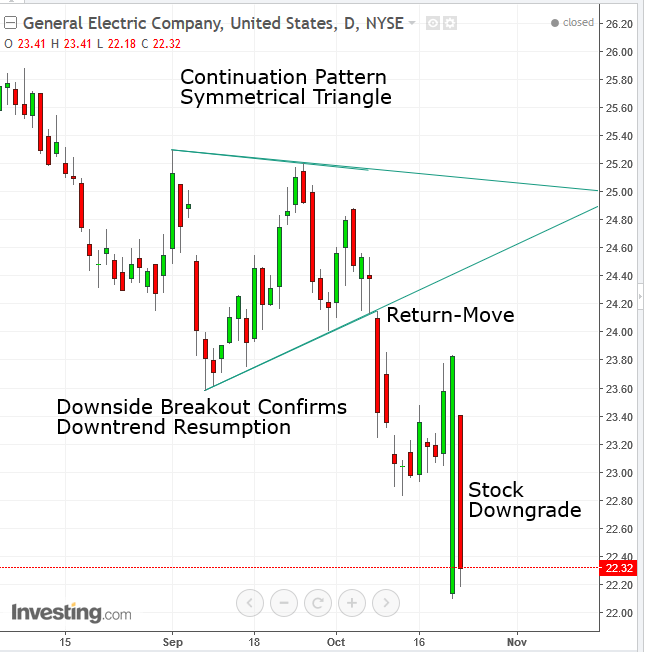
GE saw its biggest single-day loss since August 2011 as a result, slipping $1.51 or 6.3 percent to $22.32. The stock is down 29 percent this year. Two weeks ago we published our bearish outlook on the stock and unfortunately the situation has only worsened since then. Some are now saying a dividend cut could also be upcoming.
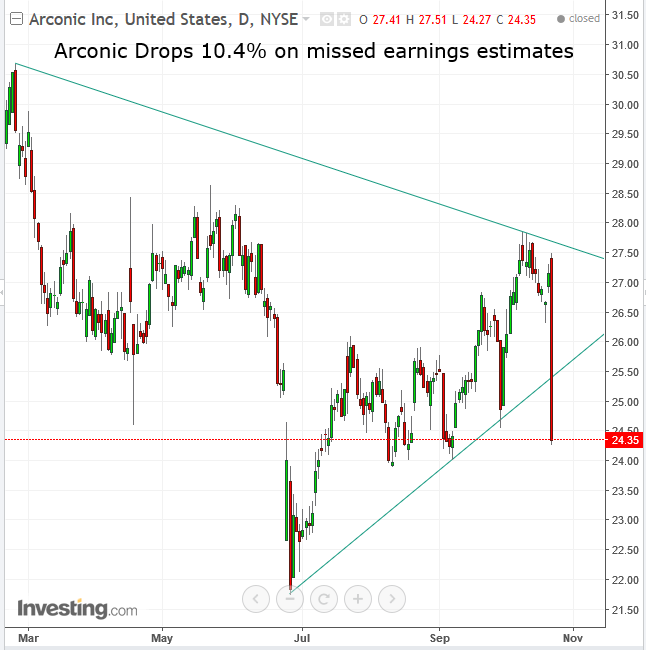
As well, aerospace parts manufacturer Arconic (NYSE:ARNC) missed quarterly profit estimates. Shares fell 10.4 percent.
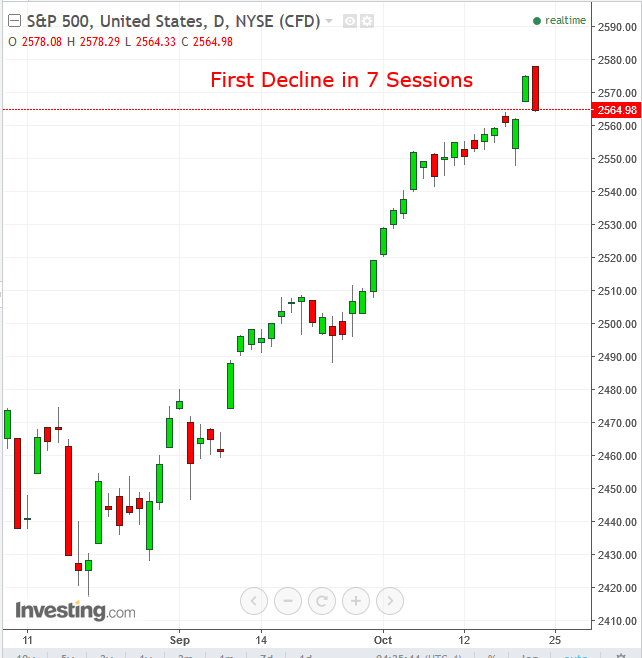
Yesterday’s decline to start the trading week comes after the S&P 500 posted record highs every day last week, for the first time since March 1998. Despite no meaningful market sell-offs, investors appear extraordinarily calm.
Perhaps that's because, irrespective of constant geopolitical risk and a breathtaking string of global record highs, along with extremely low interest rates and economic growth in the US, Europe and China which has lasted for more than a year, investors have become convinced it’s not likely to end soon.
The most recent bullish driver of stock market acceleration has been the approval of Trump’s budget, seen as the gateway for his much anticipated tax reform agenda. It's noteworthy that's what also triggered the huge equity rally that began after Trump’s election.
It looks as though investors have come full circle. Which raises the following question: how would markets and investors respond if tax reform doesn’t happen till the end of the year? Or even later?
Global Financial Affairs
This morning, amidst an Asian equity markets advance, Japan's Nikkei 225 extended its already record setting rally to a new 21-year high, on a record-breaking 16th consecutive gain. The dollar advanced for a third day on the promise of tax reform and a faster path to higher interest rates.
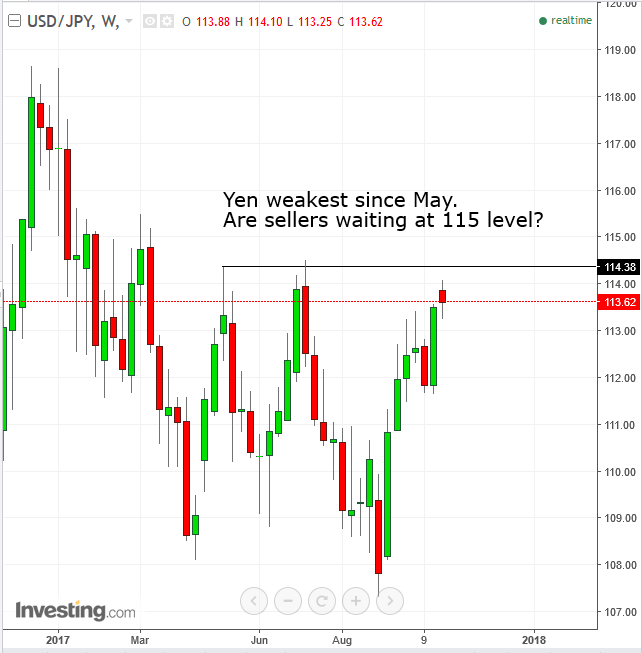
This weakened major currencies, in particular the safe-haven yen. The weaker Japanese currency means the export driven Japanese economy will become more competitive, providing an additional boost to shares.
The rally didn’t make it into European trading, however. The Stoxx Europe 600 Index squeaked higher amid mixed moves from the various European gauges.
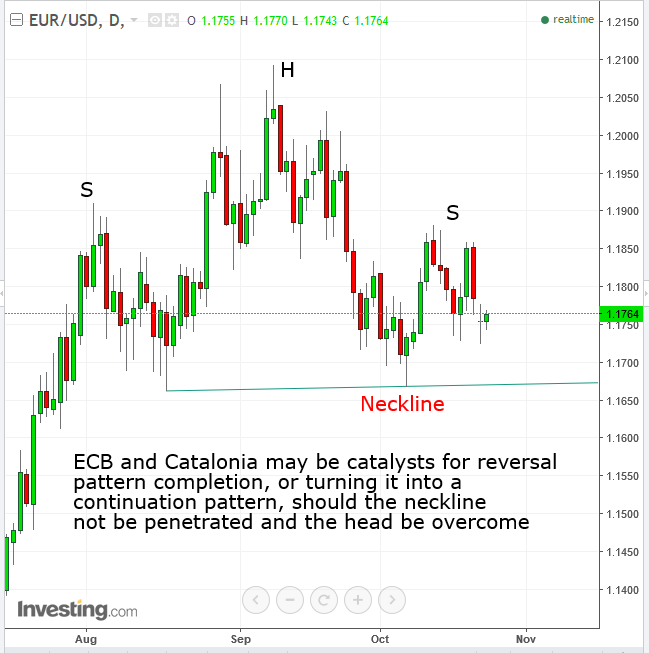
Traders of the single currency remain in a holding pattern ahead of Thursday’s ECB meeting. Markets are expecting more insight into the central bank’s plans for shrinking its balance sheet, which is scheduled to continue until the end of the year. Policy makers have already said that inflation still requires stimulus and that interest rates will remain “at or below” the current levels for the foreseeable futures. The euro is likely to remain under pressure till the Spain-Catalonia standoff resolves.
In the US, investors eagerly await developments on the nomination for the next Fed Chair and the US budget.
Up Ahead
- Economists forecast the U.S. economy probably expanded at about a 2.5 percent annualized pace in the third quarter, restrained in part by the effects of two hurricanes. The official GDP report will be released on Friday.
- Additional U.S. data this week includes big-ticket durable goods orders which are expected to have increased, a sign of firmer manufacturing growth.
- Australia updates on third-quarter inflation later tonight US, but Wednesday down under.
- South Korea reports on GDP and Hong Kong on imports and exports. Japan reports on CPI later in the week.
- Companies reporting earnings this week include Alphabet (NASDAQ:GOOGL), Microsoft (NASDAQ:MSFT) and Twitter (NYSE:TWTR) in the technology sector. Ford (NYSE:F), Volkswagen (OTC:VLKAY) and Boeing (NYSE:BA) headline the transportation segment. Fast food giant McDonald’s (NYSE:MCD), beverage colossus Coca-Cola (NYSE:KO) and brewer Heineken (OTC:HEINY) also report, as well as European banks including UBS (NASDAQ:UBSI) Deutsche Bank (NYSE:DB) and Barclays (NYSE:BCS).
Market Moves
Stocks
- Japan’s TOPIX rose 0.7 at the close in Tokyo. The Nikkei 225 added 0.5 percent.
- Australia’s benchmark S&P/ASX 200 ended the day fractionally higher.
- Hong Kong’s Hang Seng fell 0.4 percent while the Shanghai Composite added 0.2 percent.
- The MSCI Asia Pacific Index rose 0.2 percent.
- The Stoxx Europe 600 Index increased 0.1 percent as of 8:28 a.m. London time.
- The MSCI All-Country World Index advanced less than 0.05 percent.
- The U.K.’s FTSE 100 gained less than 0.05 percent.
- Germany’s DAX climbed 0.1 percent.
- The MSCI Emerging Markets Index sank 0.1 percent to the lowest point for the index in two weeks.
- S&P 500 Futures increased 0.1 percent.
Currencies
- The Dollar Index climbed 0.4 percent, after being up 0.13-percent and down 0.11-percent.
- The euro declined less than 0.05 percent to $1.1745, the weakest in more than two weeks.
- The British pound fell 0.1 percent to $1.3187.
- The New Zealand fell 0.6 percent to 69.23 U.S. cents.
Bonds
- The yield on 10-year Treasuries climbed two basis points to 2.38 percent.
- Germany’s 10-year yield advanced two basis points to 0.45 percent.
- Britain’s 10-year yield gained one basis point to 1.321 percent.
Commodities
- Gold fell 0.2 percent to $1,279.86 an ounce, the weakest in more than two weeks.
- West Texas Intermediate crude declined 0.1 percent to $51.85 a barrel.
